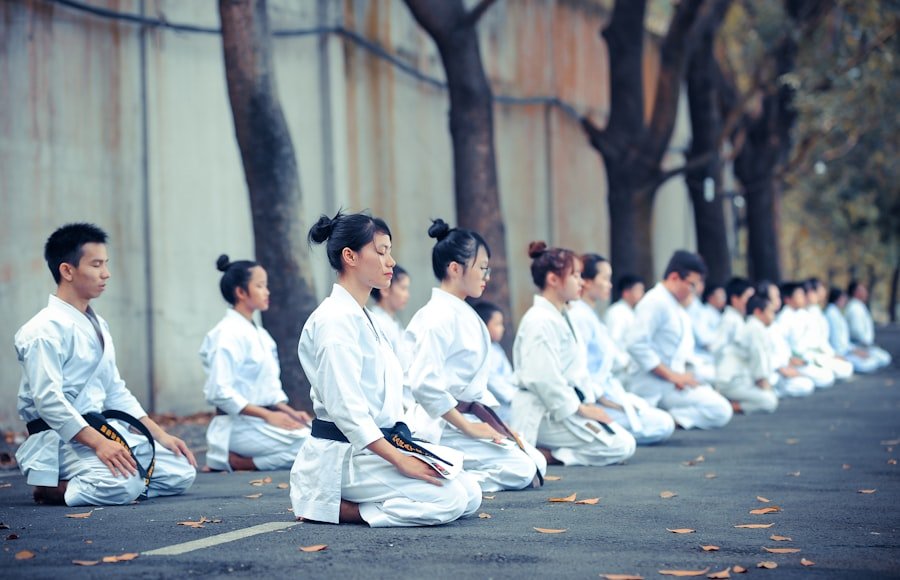In an increasingly globalised world, the ability to communicate in Mandarin has become a significant asset, particularly for those attending seminars in China. As the most spoken language in the world, Mandarin not only serves as a means of communication but also opens doors to understanding a rich cultural heritage. For professionals and academics alike, mastering Mandarin can enhance their engagement during seminars, allowing them to connect more deeply with local participants and speakers.
This linguistic skill can transform a mere attendance into an immersive experience, fostering meaningful exchanges and collaborations. Moreover, learning Mandarin equips attendees with the tools to navigate the complexities of Chinese society. Understanding the language allows for a more nuanced appreciation of discussions that may involve intricate cultural references or idiomatic expressions.
This depth of understanding can lead to more fruitful interactions, as participants are better prepared to ask questions, share insights, and contribute to discussions. In essence, learning Mandarin is not just about acquiring a new language; it is about embracing a new way of thinking and engaging with the world. Spaces are filling up fast! Register for Chinese classes at the LC Chinese School in Oslo today.
Table of Contents
ToggleSummary
- Learning Mandarin is crucial for a seminar in China to effectively communicate with locals and gain a deeper understanding of the culture.
- Learning Mandarin in Oslo can open up opportunities for personal and professional growth, as well as enhance cross-cultural communication.
- Finding the right Mandarin language course is essential to meet your specific needs, whether it’s for business, travel, or personal enrichment.
- Understanding the cultural context of Mandarin is important for effective communication and building strong relationships in a Chinese setting.
- Practical tips for learning Mandarin include immersing yourself in the language, practicing with native speakers, and using language learning apps to supplement your studies.
The Benefits of Learning Mandarin in Oslo
Oslo, with its vibrant multicultural environment, offers a unique backdrop for learning Mandarin. The city is home to various language schools and cultural institutions that provide tailored courses for individuals at different proficiency levels. One of the primary benefits of learning Mandarin in Oslo is the accessibility of resources and qualified instructors who are well-versed in both the language and its cultural context.
This localised approach ensures that learners receive comprehensive training that is relevant to their personal or professional goals. Additionally, studying Mandarin in Oslo allows learners to connect with a diverse community of language enthusiasts. Engaging with fellow students from various backgrounds can enrich the learning experience, as it fosters an environment of collaboration and cultural exchange.
Language meet-ups, conversation clubs, and cultural events provide ample opportunities for practice outside the classroom, making the process of learning more dynamic and enjoyable. The supportive atmosphere in Oslo encourages learners to take risks and experiment with their language skills, ultimately leading to greater confidence and fluency.
Finding the Right Mandarin Language Course for Your Needs

When embarking on the journey to learn Mandarin, selecting the right course is crucial for achieving your language goals. In Oslo, there are numerous options available, ranging from intensive immersion programmes to casual evening classes. It is essential to assess your current proficiency level, learning style, and specific objectives before making a decision.
For instance, if you are preparing for a seminar in China, an intensive course focusing on conversational skills and business vocabulary may be most beneficial. Furthermore, consider the teaching methods employed by different language schools. Some may emphasise traditional grammar and vocabulary drills, while others might adopt a more communicative approach that prioritises speaking and listening skills.
The LC Chinese School in Oslo stands out for its interactive teaching style, which encourages students to engage actively with the language through role-playing and real-life scenarios. By choosing a course that aligns with your learning preferences, you can maximise your potential for success and ensure a more enjoyable experience.
Understanding the Cultural Context of Mandarin
Language is intrinsically linked to culture, and this is particularly true for Mandarin. To truly grasp the nuances of the language, learners must also immerse themselves in the cultural context from which it originates. Understanding Chinese customs, traditions, and social norms can significantly enhance one’s ability to communicate effectively.
For example, certain phrases or expressions may carry different connotations depending on the cultural backdrop, making it essential for learners to be aware of these subtleties. Moreover, cultural understanding can foster empathy and respect when interacting with native speakers. It allows learners to appreciate the significance of certain gestures or behaviours that may seem foreign at first glance.
By delving into Chinese culture alongside language study, learners can develop a more holistic understanding of their communication efforts. This cultural competence not only enriches personal interactions but also proves invaluable in professional settings where cross-cultural collaboration is key.
Practical Tips for Learning Mandarin in Preparation for Your Seminar
Preparing for a seminar in China requires strategic planning and dedicated practice when it comes to learning Mandarin. One effective approach is to set specific goals for your language acquisition journey. For instance, aim to master essential phrases related to your seminar topics or industry-specific vocabulary that will enable you to engage meaningfully with other participants.
Creating a study schedule that allocates time for both structured lessons and independent practice can help maintain motivation and ensure steady progress. In addition to formal study, incorporating Mandarin into your daily life can significantly enhance retention and fluency. Listening to Chinese podcasts or watching films with subtitles can improve your listening skills while exposing you to different accents and dialects.
Furthermore, utilising language-learning apps can provide interactive exercises that reinforce vocabulary and grammar concepts. Engaging with native speakers through language exchange platforms or local meet-ups can also offer invaluable conversational practice, helping you build confidence before your seminar.
How Learning Mandarin Can Enhance Your Seminar Experience

The ability to communicate in Mandarin during a seminar can profoundly impact your overall experience. Not only does it facilitate smoother interactions with local participants, but it also allows you to engage more deeply with the content being presented. When you understand the language being spoken, you are better equipped to grasp complex ideas and contribute meaningfully to discussions.
This active participation can lead to richer insights and a more rewarding seminar experience. Moreover, speaking Mandarin can help break down barriers between you and other attendees. It demonstrates respect for their culture and fosters goodwill, creating an atmosphere conducive to collaboration and networking.
When you make an effort to communicate in their language, participants are often more willing to share their perspectives and engage in dialogue. This mutual respect can lead to lasting professional relationships that extend beyond the seminar itself.
Overcoming Language Barriers in a Seminar Setting
Language barriers can pose significant challenges during seminars, particularly in a multilingual environment where participants may have varying levels of proficiency in English or other languages. However, by learning Mandarin, you can effectively mitigate these challenges and enhance your ability to connect with others. When faced with unfamiliar terminology or concepts during discussions, having a foundational understanding of Mandarin allows you to ask clarifying questions or seek further explanations without feeling lost.
Additionally, being proactive about overcoming language barriers involves utilising non-verbal communication strategies. Body language, gestures, and facial expressions can convey meaning even when words fail. By combining your Mandarin skills with these non-verbal cues, you can create a more inclusive environment where everyone feels comfortable participating.
This adaptability not only enriches your own experience but also contributes positively to the overall dynamics of the seminar.
Navigating Chinese Etiquette and Customs
Understanding Chinese etiquette is essential for anyone attending a seminar in China. The nuances of social interactions can vary significantly from those in Western cultures, making it crucial for attendees to familiarise themselves with local customs. For instance, greetings often involve a handshake accompanied by a slight bow as a sign of respect.
Additionally, addressing individuals by their titles followed by their surname is customary in professional settings. Moreover, gift-giving plays an important role in Chinese culture and can be an effective way to build rapport during seminars. However, it is essential to be mindful of cultural sensitivities when selecting gifts; items such as clocks or umbrellas may carry negative connotations.
By demonstrating an understanding of these customs through your behaviour and communication style, you can foster goodwill among participants and create a positive impression.
How Mandarin Language Skills Can Improve Networking Opportunities
Networking is a vital component of any seminar experience, and proficiency in Mandarin can significantly enhance your ability to forge connections with fellow attendees. When you are able to converse in their native language, you create an immediate sense of familiarity and trust that can facilitate deeper conversations. This connection often leads to more meaningful exchanges of ideas and potential collaborations that may not have been possible otherwise.
Furthermore, speaking Mandarin allows you to engage with local professionals on their terms, demonstrating your commitment to understanding their culture and business practices. This dedication can set you apart from other attendees who may rely solely on English communication. As a result, you may find yourself receiving invitations to exclusive events or discussions that further expand your professional network.
The Role of Mandarin in Business and Professional Settings
In today’s global economy, Mandarin has emerged as a critical language for business professionals seeking opportunities in China and beyond. As one of the world’s largest economies, China presents numerous avenues for collaboration across various industries. Proficiency in Mandarin not only facilitates communication but also signals cultural competence—a valuable trait in international business dealings.
Moreover, understanding Mandarin allows professionals to navigate complex negotiations with greater ease. Familiarity with industry-specific terminology enables clearer communication of ideas and expectations while minimising misunderstandings that could arise from language barriers. As businesses increasingly seek individuals who possess both technical skills and linguistic capabilities, learning Mandarin becomes an invaluable asset for career advancement.
Making the Most of Your Seminar Experience in China with Mandarin Language Skills
Ultimately, learning Mandarin equips you with the tools necessary to maximise your seminar experience in China fully. From engaging meaningfully with speakers to navigating cultural nuances seamlessly, proficiency in the language enhances every aspect of your participation. By investing time and effort into mastering Mandarin before your seminar, you position yourself for success—both personally and professionally.
At LC Chinese School in Oslo, students have access to tailored courses designed specifically for those preparing for international experiences like seminars in China. With experienced instructors who understand the unique challenges faced by learners, LC Chinese School provides an environment conducive to growth and confidence-building. By choosing this school as your partner in learning Mandarin, you are taking a significant step towards enriching your seminar experience and expanding your horizons in an increasingly interconnected world.
In conclusion, embracing the challenge of learning Mandarin not only prepares you for a seminar in China but also opens up a wealth of opportunities for personal growth and professional development. With dedication and the right resources at your disposal—such as those offered by LC Chinese School—you can embark on this rewarding journey towards fluency and cultural understanding.







